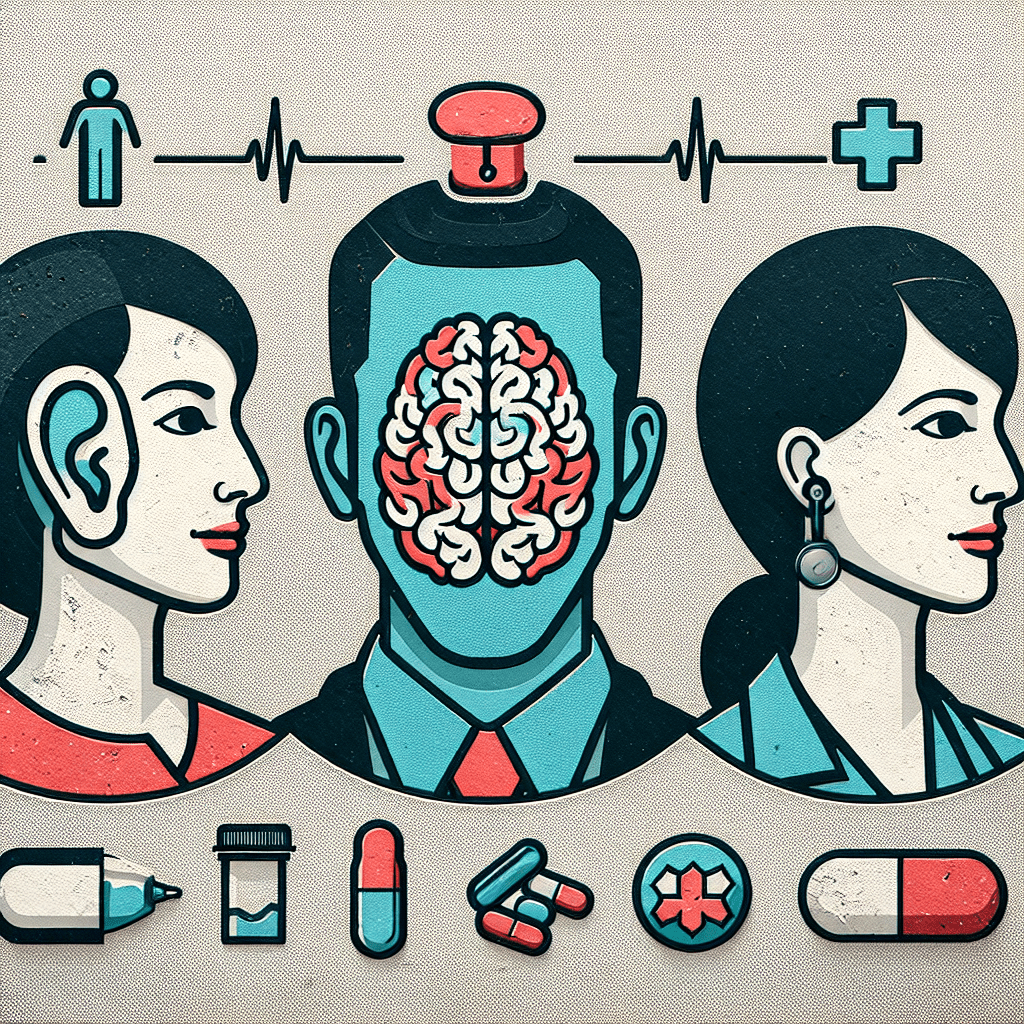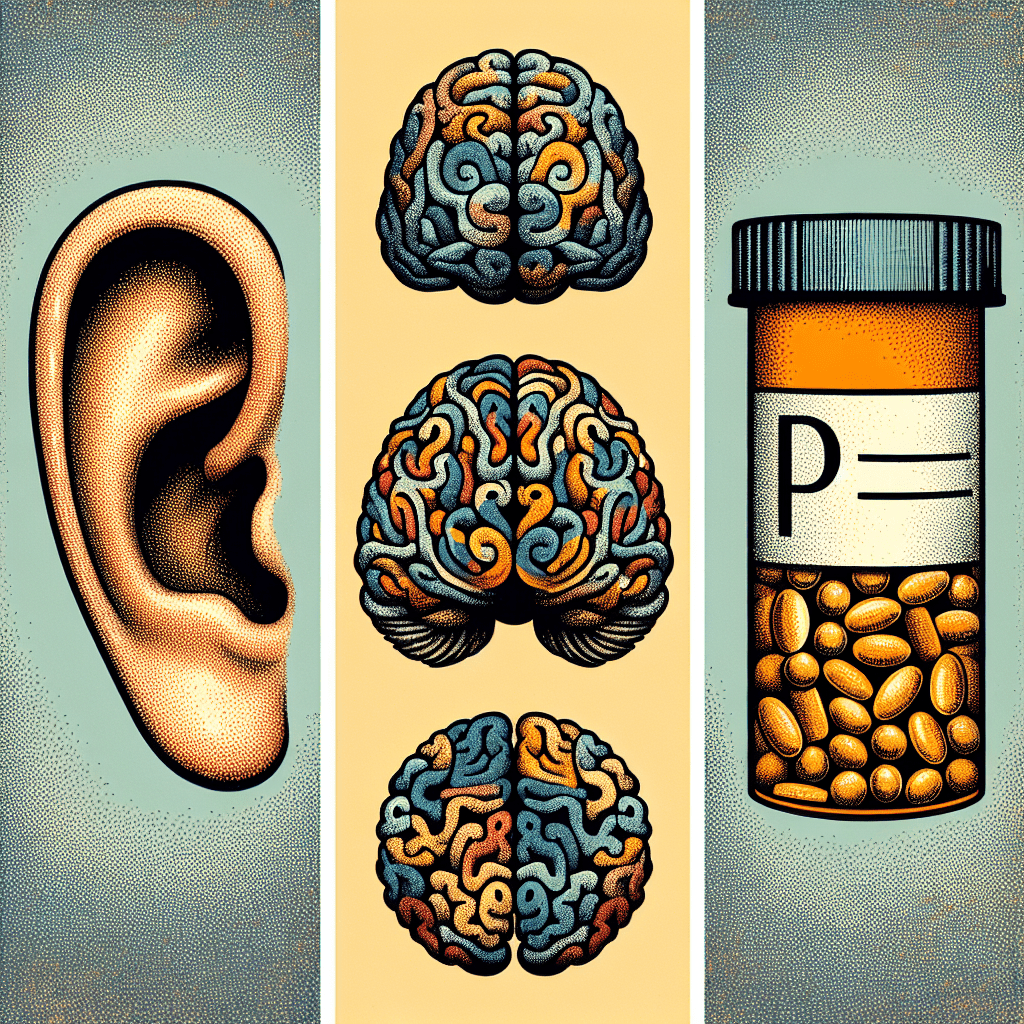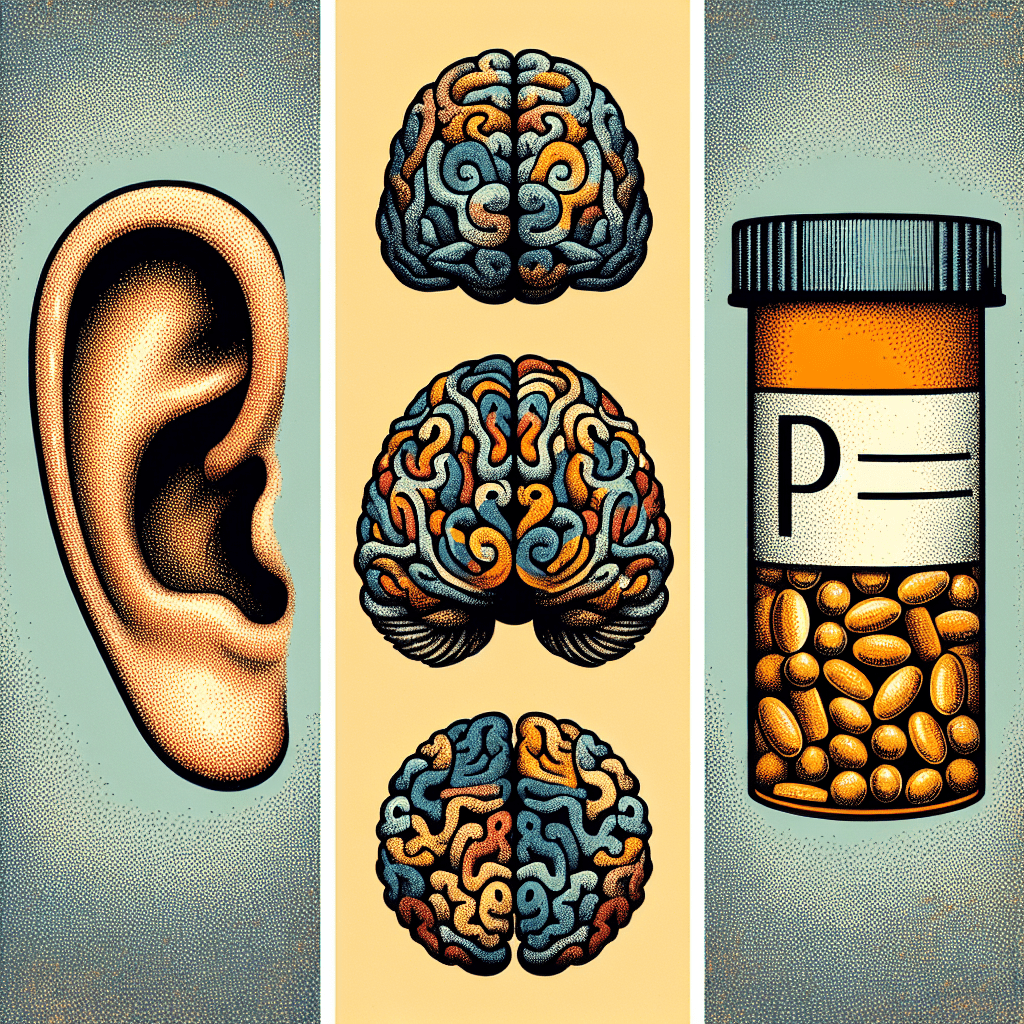If you’ve ever wondered about the differences between a therapist, a psychologist, and a psychiatrist, you’re not alone. These three professions may seem similar in their focus on mental health, but they each bring unique skill sets and qualifications to the table. In this article, we will explore the distinctions between a therapist, a psychologist, and a psychiatrist, helping you gain a better understanding of which professional might be the best fit for your needs. So, let’s dive into the fascinating world of mental health and discover what sets these three disciplines apart.
Therapist
Definition
A therapist is a trained professional who provides psychological counseling and therapy to individuals, couples, families, or groups. As a therapist, their primary goal is to help clients address and overcome various emotional, mental, and behavioral issues that may be causing distress or hindering their overall well-being.
Education and Training
To become a therapist, one typically needs to complete a master’s or doctoral degree in a mental health-related field, such as counseling, psychology, or social work. Additionally, therapists are required to undergo extensive supervised clinical training and obtain relevant licenses or certifications in their respective jurisdictions.
Scope of Practice
Therapists have a wide range of specialties and approaches to address different mental health concerns. Some therapists might specialize in specific areas such as trauma, addiction, or family therapy, while others may take a more generalist approach. They often use various evidence-based therapeutic techniques and interventions to assist their clients in developing coping strategies, improving relationships, managing stress, and promoting personal growth.
Approach and Techniques
Therapists utilize different therapeutic approaches depending on their training and the needs of their clients. Some commonly used approaches include cognitive-behavioral therapy (CBT), psychodynamic therapy, person-centered therapy, and family systems therapy. These approaches help clients explore their thoughts, emotions, and behaviors to understand and make positive changes in their lives.
Clients
Therapists work with a diverse range of clients, including individuals of all ages, couples, families, and groups. They address a wide array of mental health concerns such as anxiety, depression, relationship issues, trauma, grief, and more. Therapists tailor their approach to meet the unique needs and goals of each client, creating a safe and nonjudgmental space for them to express themselves.
Settings
Therapists practice in various settings, including private clinics, hospitals, community mental health centers, rehabilitation facilities, schools, and online platforms. They may collaborate with other healthcare professionals, such as psychiatrists or primary care physicians, to provide comprehensive care to their clients.
Licensing and Regulation
Therapists are generally required to obtain a license or certification from the governing body in their region after completing the necessary education and supervised experience. Licensing requirements and regulations vary from state to state and country to country, ensuring that therapists meet specific professional standards and adhere to ethical guidelines.
Cost
The cost of therapy sessions can vary depending on factors such as location, therapist’s expertise, and the type of therapy being provided. Therapists may charge on an hourly basis or offer package deals. However, many therapists offer sliding-scale fees or accept insurance, making therapy more accessible and affordable for individuals with limited financial resources.
Duration of Treatment
The duration of therapy can vary greatly depending on the individual’s needs, goals, and the complexity of the issues being addressed. Some clients may find relief and make progress in a few sessions, while others might benefit from long-term therapy spanning several months or even years. Therapists work collaboratively with their clients to determine an appropriate duration of treatment.
Specialties
Therapists often have expertise in specific areas of mental health and can specialize in various modalities of therapy. Some common specialties include marriage and family therapy, substance abuse counseling, trauma-focused therapy, play therapy for children, and LGBTQ+ affirmative therapy. Specializations allow therapists to cater to specific populations or address specific issues comprehensively.
Psychologist
Definition
A psychologist is a trained professional who studies human behavior and mental processes. As a psychologist, their aim is to understand, explain, and predict behavior, as well as provide assessment, diagnosis, and psychotherapy services to individuals experiencing psychological distress.
Education and Training
Psychologists typically complete an undergraduate degree in psychology followed by a doctoral degree (Ph.D. or Psy.D.) in psychology. Doctoral programs in psychology provide comprehensive training in assessment, research methodologies, and various therapeutic techniques. Psychologists also undergo supervised clinical experience and must obtain a license to practice independently.
Scope of Practice
Psychologists have a broad scope of practice that includes conducting psychological assessments, diagnosing mental health disorders, and providing psychotherapy. They employ evidence-based approaches and therapeutic techniques to help individuals develop coping strategies, manage symptoms, and promote overall psychological well-being.
Approach and Techniques
Psychologists approach therapy from a scientific perspective, utilizing research-supported therapeutic techniques to address various mental health concerns. They may use cognitive-behavioral therapies, psychodynamic approaches, humanistic therapies, or a combination of approaches based on the client’s needs and treatment goals.
Clients
Psychologists work with diverse populations and individuals of all ages. They may provide therapy for individuals, couples, families, or groups. Psychologists address a wide range of psychological issues, including anxiety disorders, mood disorders, personality disorders, trauma-related disorders, and more.
Settings
Psychologists practice in a variety of settings, including private practice, hospitals, universities, research institutions, schools, and community mental health centers. They may collaborate with other healthcare professionals, such as psychiatrists or primary care physicians, as part of a multidisciplinary team.
Licensing and Regulation
Psychologists are required to obtain a license to practice independently in most jurisdictions. Licensing requirements typically involve completing a doctoral degree in psychology, passing a national or state licensing exam, and accumulating supervised clinical experience. Psychologists must adhere to professional and ethical guidelines established by their licensing board.
Cost
The cost of therapy sessions with a psychologist can vary depending on the location, the psychologist’s experience, and the type of services provided. Many psychologists accept insurance, making therapy more affordable for individuals with coverage. Some psychologists may also offer sliding-scale fees or reduced rates for clients with financial constraints.
Duration of Treatment
The duration of treatment provided by psychologists can vary depending on the individual’s needs and the complexity of the issues being addressed. Short-term therapy may range from a few sessions to a few months, while long-term therapy may extend over several years. Psychologists work collaboratively with their clients to determine the appropriate duration and frequency of therapy.
Specialties
Psychologists often specialize in specific areas of psychology, such as clinical psychology, counseling psychology, neuropsychology, forensic psychology, or child psychology. Specializations allow psychologists to develop expertise in particular domains and provide more targeted and effective treatment for specific populations or mental health conditions.

Psychiatrist
Definition
A psychiatrist is a medical doctor who specializes in the diagnosis, treatment, and prevention of mental illness and emotional disorders. As medical professionals, psychiatrists can prescribe medication and provide a comprehensive approach to mental health care.
Education and Training
Psychiatrists undergo extensive medical training, including completing an undergraduate degree, attending medical school, and specializing in psychiatry during their residency. They receive training in areas such as biology, physiology, pharmacology, and psychiatry to develop a comprehensive understanding of the mind and body connection.
Scope of Practice
Psychiatrists have a wide scope of practice that encompasses diagnosing and treating psychiatric disorders, prescribing medication, and providing psychotherapy. They often work collaboratively with other mental health professionals to offer an integrated approach to mental health care.
Approach and Techniques
Psychiatrists may use various therapeutic approaches, including cognitive-behavioral therapy, psychodynamic therapy, or pharmacotherapy. They integrate their medical knowledge and expertise in psychopharmacology to assess the need for medication and provide medication management for individuals with mental health disorders.
Clients
Psychiatrists work with individuals experiencing a variety of psychiatric disorders, ranging from common conditions such as depression and anxiety to more severe disorders such as schizophrenia or bipolar disorder. They also address co-occurring medical conditions that may impact mental health or vice versa.
Settings
Psychiatrists practice in various settings, including private practice, hospitals, mental health clinics, and rehabilitation centers. They may also collaborate with therapists, psychologists, and other healthcare professionals to provide comprehensive care for their clients.
Licensing and Regulation
Psychiatrists must obtain a medical license after completing medical school and their residency training in psychiatry. They are regulated by medical boards and professional organizations, ensuring that they meet specific standards and adhere to ethical guidelines in their practice.
Cost
The cost of psychiatric services can vary depending on factors such as location, psychiatrist’s expertise, and the complexity of the issues being addressed. Psychiatric services, including medication management, may be covered by insurance plans, making them more accessible to individuals with coverage.
Duration of Treatment
The duration of treatment provided by psychiatrists can vary depending on several factors, including the severity of the disorder, the individual’s response to treatment, and the complexity of the issues being addressed. Treatment may involve a combination of medication and therapy, with the frequency of follow-up appointments varying from weekly to several months.
Specialties
Psychiatrists often specialize in specific areas of psychiatry, such as child and adolescent psychiatry, geriatric psychiatry, addiction psychiatry, or forensic psychiatry. Specializations allow psychiatrists to focus on particular populations or mental health conditions, providing specialized and targeted care.
Differences
Education and Training
One of the significant differences between therapists, psychologists, and psychiatrists lies in their educational background and training requirements. Therapists typically have a master’s or doctoral degree in a mental health-related field, whereas psychologists have a doctoral degree (Ph.D. or Psy.D.) in psychology. Psychiatrists, on the other hand, are medical doctors who specialize in psychiatry after completing medical school.
Medical Background
While therapists and psychologists receive training in mental health, neither are medical doctors. Psychiatrists, given their medical background, have a comprehensive understanding of the physiological aspects of mental illness and can prescribe medication when necessary.
Approach and Techniques
Therapists and psychologists primarily provide talk therapy as their primary therapeutic approach. They rely on evidence-based techniques, such as cognitive-behavioral therapy and psychodynamic therapy, to help clients address their concerns. Psychiatrists, in addition to talk therapy, can prescribe medication as part of their treatment approach.
Prescription Authority
Only psychiatrists have the authority to prescribe medication to their clients. Therapists and psychologists collaborate with psychiatrists when medication may be beneficial to a client’s mental health treatment.
Collaboration with Other Health Professionals
Therapists and psychologists often collaborate with other healthcare professionals, such as psychiatrists or primary care physicians, to provide integrated and holistic care to their clients. Psychiatrists, as medical doctors, may work closely with therapists or psychologists to coordinate comprehensive treatment plans.
Scope of Practice
Therapists have a more generalized scope of practice, providing counseling and therapy to individuals, couples, families, or groups for various mental health concerns. Psychologists have a broader scope that includes psychological assessments, diagnosis, and psychotherapy. Psychiatrists, while also providing therapy, focus more on diagnosing and treating mental illnesses and prescribing medication.
Focus of Treatment
The focus of treatment may differ among therapists, psychologists, and psychiatrists. Therapists focus on addressing emotional, mental, and behavioral issues, helping clients develop coping strategies and improve their overall well-being. Psychologists place emphasis on understanding human behavior and providing mental health assessment and therapy. Psychiatrists emphasize the diagnosis, treatment, and prevention of mental illness, often utilizing medication management as part of their treatment approach.
Clientele
Therapists, psychologists, and psychiatrists work with various populations and individuals of all ages. However, psychiatrists may often work with individuals with more severe or complex psychiatric disorders, while therapists and psychologists work with a broader range of mental health concerns.
Duration and Frequency of Treatment
The duration and frequency of treatment may vary among therapists, psychologists, and psychiatrists. Therapists often provide longer-term therapy, with sessions spanning weeks, months, or even years. Psychologists may offer both short-term and long-term therapy, depending on the individual’s needs and treatment goals. Psychiatrists may focus on medication management and shorter-term therapy, with follow-up appointments scheduled as necessary.
Cost
The cost of therapy or psychiatric services can vary depending on factors such as location, professional expertise, insurance coverage, and treatment modalities. Therapists and psychologists may offer sliding-scale fees or accept insurance, making their services more accessible and affordable. Psychiatrists often charge higher fees due to their medical background and additional expertise in prescribing medication.

Similarities
Goal
The ultimate goal of therapists, psychologists, and psychiatrists is to help individuals improve their mental health and overall well-being. They strive to alleviate distress, promote personal growth, and enhance the quality of life for their clients.
Ethics
Therapists, psychologists, and psychiatrists adhere to strict ethical guidelines that govern their professional conduct. They prioritize the well-being and confidentiality of their clients, maintaining boundaries and upholding professional standards in their practice.
Confidentiality
Maintaining client confidentiality is of utmost importance for therapists, psychologists, and psychiatrists. They are legally bound to protect the privacy of their clients and ensure that their personal information remains secure and confidential.
Continuing Education
All three professions emphasize the importance of continuing education and professional development. Therapists, psychologists, and psychiatrists are encouraged to stay updated with the latest research, therapeutic techniques, and advancements in the field to provide the best possible care to their clients.
Professional Development
Therapists, psychologists, and psychiatrists engage in ongoing professional development to enhance their skills, expand their knowledge, and maintain their licenses or certifications. This may include attending conferences, participating in workshops, or pursuing additional specialized training.
Recognition and Regulation
Therapists, psychologists, and psychiatrists are recognized and regulated by professional organizations and licensing boards in their respective regions. These entities establish standards of practice, provide guidelines, and ensure that professionals meet the necessary qualifications.
Collaborative Care
Therapists, psychologists, and psychiatrists often work collaboratively, integrating their expertise to provide comprehensive care to clients. They may refer clients to one another for specialized treatment, consultation, or collaboration on complex cases. This interdisciplinary approach enhances the effectiveness and outcomes of mental health treatment.
In conclusion, therapists, psychologists, and psychiatrists all play significant roles in the field of mental health. Each profession brings unique skills, expertise, and approaches to address various mental health concerns. Understanding the differences and similarities between these professionals can help individuals make informed decisions about the type of care that may best suit their needs and goals. Whether seeking therapy, psychological assessment, or comprehensive psychiatric care, individuals can find supportive and dedicated professionals to assist them on their journey towards improved mental well-being.

